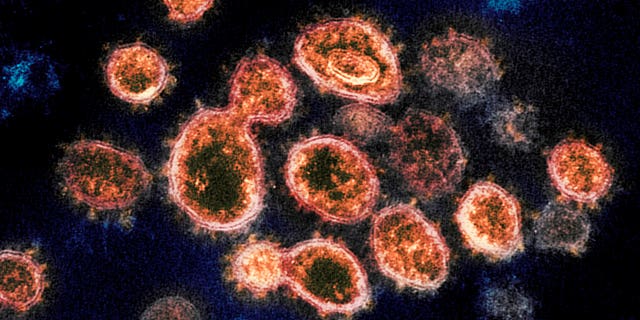
California doctor fired after questioning coronavirus lockdowns
Dr. Michael Debloisblanc discusses why he spoke out against the restrictions on ‘America’s Newsroom.’
Two new medical studies suggest that people who are infected once with COVID-19 are very unlikely to test positive again for up to six months and possibly longer.
Researchers found that people with antibodies from natural infections were "at much lower risk … on the order of the same kind of protection you'd get from an effective vaccine," of getting the virus again, said Dr. Ned Sharpless, director of the U.S. National Cancer Institute, which conducted one of the studies.
"It's very, very rare" to get reinfected, he said.
Both studies used two types of tests. One is a blood test for antibodies, which attach to a virus and help to eliminate it; antibodies can linger for many months after infection. The other type of test uses nasal or other samples to detect the virus or bits of it, suggesting current or recent infection.

FILE: This 2020 electron microscope image provided by the National Institute of Allergy and Infectious Diseases.
(NIAID-RML via AP)
One study, published Wednesday by the New England Journal of Medicine, involved more than 12,500 health workers at Oxford University Hospitals in the United Kingdom. Among the 1,265 who had coronavirus antibodies at the outset, only two had positive results on tests to detect active infection in the following six months and neither developed symptoms.
That contrasts with the 11,364 workers who initially did not have antibodies; 223 of them tested positive for infection in the roughly six months that followed.
The National Cancer Institute study involved more than 3 million people who had antibody tests from two private labs in the United States. Less than 1% of those who initially had antibodies later tested positive for the coronavirus, compared with 3% of those who lacked such antibodies.
"It's very gratifying" to see that the Oxford researchers saw the same risk reduction — 10 times less likely to have a second infection if antibodies were present, Sharpless said.
His institute's report was posted on a website that scientists use to share research and is under review at a major medical journal.
Infectious disease specialist Joshua Wolf said the findings were "not a surprise" but were reassuring because "it tells people that immunity to the virus is common."
Still, antibodies themselves may not be the protection, they might just be a sign that other parts of the immune system are able to fight off any new exposures to the virus, Wolf said.
"We don't know how long-lasting this immunity is," Wolf added. Cases of people getting COVID-19 more than once have been confirmed, so "people still need to protect themselves and others by preventing reinfection."
The Associated Press contributed to this report.
Source: Read Full Article
